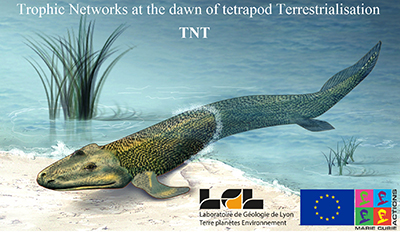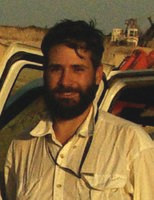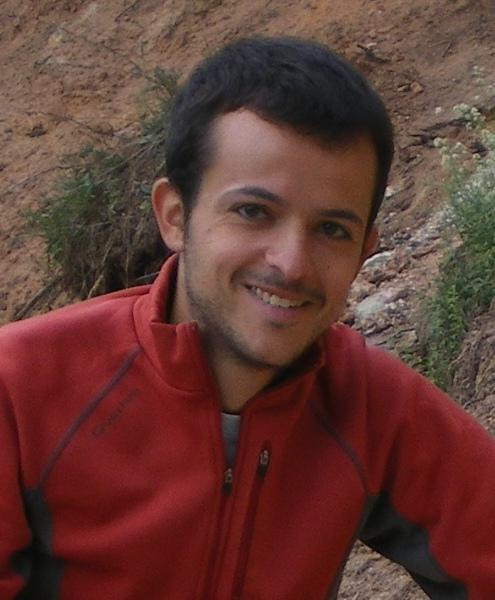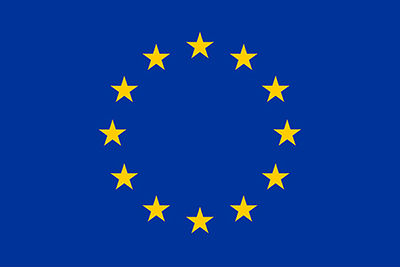
Project
The Late Devonian (380 to 360 Myr ago) is marked by the apogee of the terrestrialisation process that consists in the establishment of complex continental ecosystems.
After the invasion of land by plants, and by arthropods, it is the rise of tetrapods (four-legged vertebrates) at the end of the Devonian that will change Earth’s continental ecosystems forever. Their complete terrestrialisation is only recorded by the Carboniferous and the Late Devonian represents thus the ideal period to understand processes related to tetrapod terrestrialisation.
While the taxonomic richness, the phylogenetic relationships and the paleoenvironmental settings of Devonian tetrapods are better understood yet, a serious gap remains in our knowledge of the palaeoecological context. This is a major evolutionary issue, as tetrapods obviously did not evolve in an ecological vacuum and faunal interactions must have been critical driving forces for the transition from water to land.
To tackle these issues, the ‘Trophic Networks at the dawn of tetrapod Terrestrialisation’ (TNT) project focuses on the trophic relationships in eight crucial and diverse Devonian vertebrate assemblages containing tetrapods. It blends calcium isotope analyses with statistical analyses of ecomorphological characters to reconstruct the trophic position, trophic interactions, and paleoecology of Late Devonian vertebrates under different environments and climates.
Because Recent trophic networks provide a comparative basis for understanding Past ecosystems, two Recent localities, with fossil analogues, are also studied in the scope of the TNT project. The TNT project aims to estimate the predation pressures exerted on tetrapods and if these pressures acted as a driving force for their terrestrialisation.
MSCA-IF-EF-CAR (Career Restart panel) Funding
€ 277 061, 76
Duration
From February 2022 for a period of 36 months
MSCA - Marie Skłodowska-Curie actions
The Marie Skłodowska-Curie actions (MSCA) aim to support the career development and training of researchers in all scientific disciplines through international and intersectoral mobility. By funding excellent research and providing attractive working conditions, the MSCA offer high quality professional opportunities open to researchers of any age, nationality or discipline. The MSCA have a bottom-up approach, i.e. research fields are chosen freely by the applicants.
IF - Individual Fellowships
The goal of the Individual Fellowships is to enhance the creative and innovative potential of experienced researchers wishing to diversify their individual competence in terms of skill acquisition through advanced training, international and intersectoral mobility. Individual Fellowships provide opportunities to acquire and transfer new knowledge and to work on research and innovation in Europe (EU Member States and Associated Countries) and beyond. The scheme particularly supports the return and (re)integration of European researchers from outside Europe and those who have previously worked here, as well as researchers displaced by conflict outside the EU and Horizon 2020 Associated Countries. It also promotes the career restart of individual researchers who show great potential.
Researcher
 Jérémy Martin
Jérémy Martin
CNRS Researcher at LGL-TPE
Fellow
 Sébastien Olive
Sébastien Olive
Tenure track position at the Royal Institute of Natural Sciences of Belgium
 Sébastien Olive received funding from the European Union’s Horizon 2020 research and innovation programme under the Marie Sklodowska-Curie grant agreement No 101032456-TNT
Sébastien Olive received funding from the European Union’s Horizon 2020 research and innovation programme under the Marie Sklodowska-Curie grant agreement No 101032456-TNT






